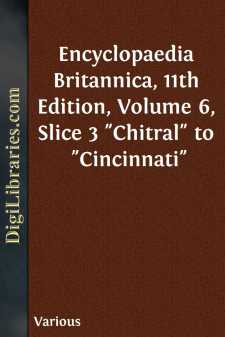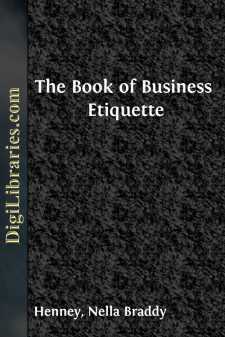Categories
- Antiques & Collectibles 13
- Architecture 36
- Art 48
- Bibles 22
- Biography & Autobiography 813
- Body, Mind & Spirit 142
- Business & Economics 28
- Children's Books 17
- Children's Fiction 14
- Computers 4
- Cooking 94
- Crafts & Hobbies 4
- Drama 346
- Education 46
- Family & Relationships 57
- Fiction 11829
- Games 19
- Gardening 17
- Health & Fitness 34
- History 1377
- House & Home 1
- Humor 147
- Juvenile Fiction 1873
- Juvenile Nonfiction 202
- Language Arts & Disciplines 88
- Law 16
- Literary Collections 686
- Literary Criticism 179
- Mathematics 13
- Medical 41
- Music 40
- Nature 179
- Non-Classifiable 1768
- Performing Arts 7
- Periodicals 1453
- Philosophy 64
- Photography 2
- Poetry 896
- Political Science 203
- Psychology 42
- Reference 154
- Religion 513
- Science 126
- Self-Help 84
- Social Science 81
- Sports & Recreation 34
- Study Aids 3
- Technology & Engineering 59
- Transportation 23
- Travel 463
- True Crime 29
Encyclopaedia Britannica, 11th Edition, Volume 6, Slice 3 "Chitral" to "Cincinnati"
by: Various
Categories:
Description:
Excerpt
CHITRAL, a native state in the North-West Frontier Province of India. The state of Chitral (see also
) is somewhat larger than Wales, and supports a population of about 35,000 rough, hardy hillmen. Previous estimates put the number far higher, but as the Mehtar assesses his fighting strength at8000 only, this number is probably not far wrong. Both the state and its capital are called Chitral, the latter being situated about 47 m. from the main watershed of the range of the Hindu Kush, which divides the waters flowing down to India from those which take their way into the Oxus. Chitral is an important state because of its situation at the extremity of the country over which the government of India exerts its influence, and for some years before 1895 it had been the object of the policy of the government of India to control the external affairs of Chitral in a direction friendly to British interests, to secure an effective guardianship over its northern passes, and to keep watch over what goes on beyond these passes. This policy resulted in a British agency being established at Gilgit (Kashmir territory), with a subordinate agency in Chitral, the latter being usually stationed at Mastuj (65 m. nearer to Gilgit than the Chitral capital), and occasional visits being paid to the capital. Chitral can be reached either by the long circuitous route from Gilgit, involving 200 m. of hill roads and the passage of the Shandur pass (12,250 ft.), or (more directly) from the Peshawar frontier at Malakand by 100 m. of route through the independent territories of Swat and Bajour, involving the passage of the Lowarai (10,450 ft). It is held by a small force as a British outpost.The district of Chitral is called Kashgar (or Kashkar) by the people of the country; and as it was under Chinese domination in the middle of the 18th century, and was regarded as a Buddhist centre of some importance by the Chinese pilgrims in the early centuries of our era, it is possible that it then existed as an outlying district of the Kashgar province of Chinese Turkestan, where Buddhism once flourished in cities that have been long since buried beneath the sand-waves of the Takla Makan. The aboriginal population of the Chitral valley is probably to be recognized in the people called Kho (speaking a language called Khowar), who form the majority of its inhabitants. Upon the Kho a people called Ronas have been superimposed. The Ronas, who form the chief caste and fighting race of the Chitral districts, originally came from the north, but they have adopted the language and fashions of the conquered Chitrali.
The town of Chitral (pop. in 1901, 8128), is chiefly famous for a siege which it sustained in the spring of 1895. Owing to complications arising from the demarcation of the boundary of Afghanistan which was being carried out at that time, and the ambitious projects of Umra Khan, chief of Jandol, which was a tool in the hands of Sher Afzul, a political refugee from Chitral supported by the amir at Kabul, the mehtar (or ruler) of Chitral was murdered, and a small British and Sikh garrison subsequently besieged in the fort....















![The Foolish Dictionary
An exhausting work of reference to un-certain English words, their origin, meaning, legitimate and illegitimate use, confused by a few pictures [not included]](https://digilibraries-com.s3.eu-central-1.amazonaws.com/covers/e84f9f82-62c7-4da1-b725-6129f48ce4ad.jpg)
